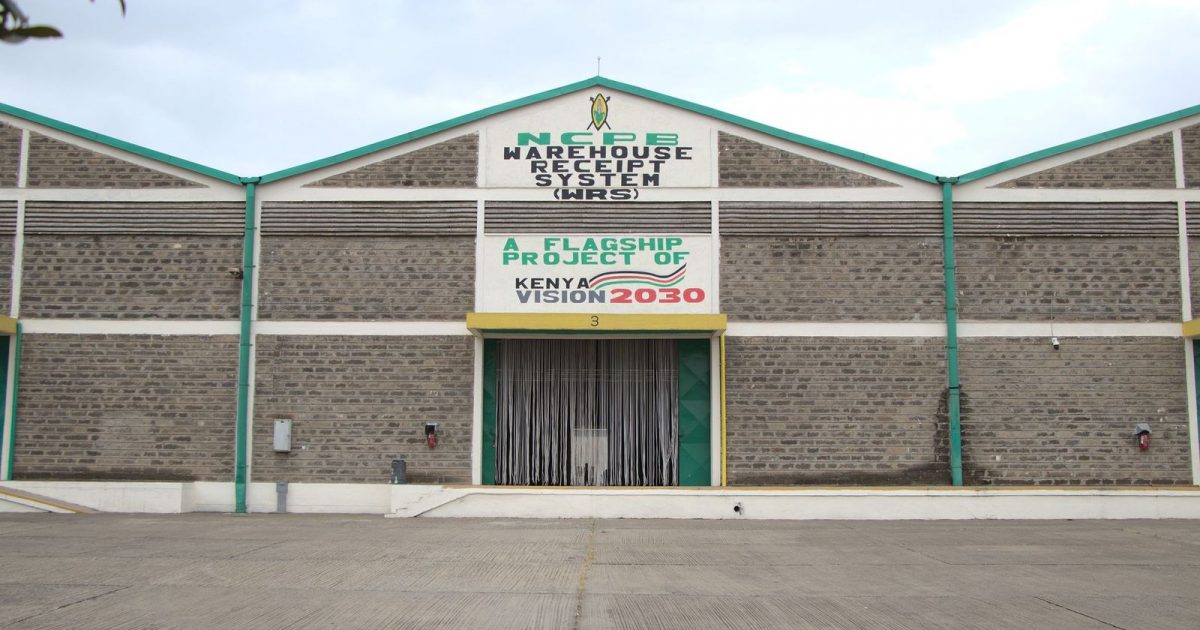

The introduction of the innovative Warehouse Receipt System (WRS) by the government in the agriculture sector has increased lending in the sector, a move that has seen small scale farmers reap maximum benefits from their produce.
For a long time, small scale farmers have been facing challenges of accessing loans from financial institutions as only 5 per cent of bank lending in the country goes to the agricultural sector in support of agribusiness.

The hardworking farmers, youth and women are also affected by lack of structured commodity trade system which has led to high post-harvest losses thereby contributing to low earnings by the farmers.
Currently, most farmers, dealers and traders who are unable to get loans from financial institutions because of the unpredictable, fragmented and unstructured nature of their agricultural activities, are now using the commodities they store in the warehouses to access credit.
According to Mr. Samwel Ogola, Ag. Chief Executive Officer Warehouse Receipt Council, the initiative which supports the government’s efforts in strengthening the uptake of financial services by farmers and formalizes commodity market in the country as envisioned in the agricultural growth strategy of Vision 2030 has helped to reduce post-harvest losses in the country from 40 per cent to 10 per cent.
He said farmers, traders, women and the youth are encouraged to use the system to store their commodities in certified warehouses where they will be issued with receipts which they can use as a collateral which acts as a commitment to get loans and pay school fees.
The Warehouse Receipt System covers five National Cereals and Produce Board certified warehouses in Kitale, Eldoret, Nakuru, Nairobi, and Meru.
“This receipt indicates proof of ownership and can be used as collateral for short-term credit from a participatory bank or other financial institutions by farmers,” said Ogola, adding that WRS regulatory framework recognizes receipts as documents of title which are transferable and negotiable instruments for boosting access to credit.
The CEO added that the warehouse receipt can also be used to deposit agricultural commodities and encouraged farmers, youth and women to take advantage of the Warehouse Receipt System to invest in agricultural value chain systems.
The agricultural produce covered under the initiative include both grain and non-grain commodities which include maize, beans, wheat, sorghum, coffee, tea and green grams.
Noting that WRS objective is to boost structured agricultural commodities trade and enhance prices in order to increase farmers’ incomes, the CEO said the warehouses will also reduce post-storage losses through improved storage facilities with better warehousing infrastructure, as well as improve access to credit for value chain players through collateralization of the commodities within a secure and structured trading system.
Ogola said, “The warehouses will bring together buyers and sellers in a well-coordinated and rules-based manner in such a way that all parties to a transaction benefit equitably and present greater contribution to the shared socio-economic benefit”.
He however, noted that there is a need for the country to put in place quality storage facilities among them climate-controlled warehouses to reduce post-harvest losses, and to improve warehouse storage techniques and technologies through new model warehouse infrastructure.
The system boasts of numerous benefits among them, increase of bank lending for agricultural commodities, access to credit financing by youth and women who do not own land and title deeds but are owners of commodities, with the receipt as proof of ownership.
Ownership of receipt also allows farmers to sell their produce to large traders at better prices, it has reduced forced selling at low prices hereby strengthening incomes and smoothing consumption as farmers use receipts to secure credit facilities and trade on the commodities exchange, it also allows millers and processors to procure grain directly from farmers which shortens the market chain and reduces transaction cost.
The Warehouse Receipts Systems Act was passed in Parliament in June, 2019, its approval led to the setting of a legal framework Receipt System in Kenya and a Warehouse Receipt System Council which was inaugurated on 29th July, 2020.
The Councils’ mandate is to establish, maintain and develop a warehouse receipt system for agricultural commodities produced in the country.
By Bernadette Khaduli
Originally published at https://www.kenyanews.go.ke/warehouse-receipt-system-benefits-small-scale-farmers/
